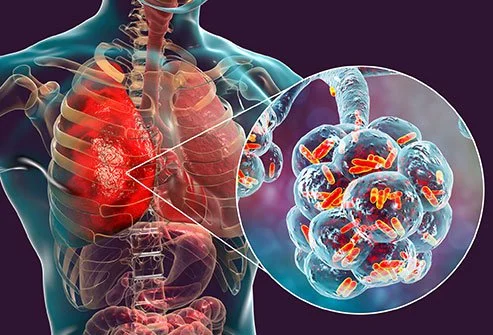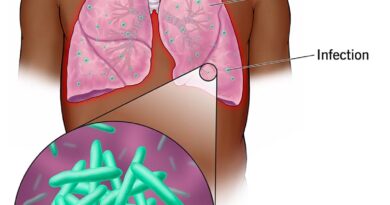Pneumonia – Symptoms, Causes and Treatment
Pneumonia refers to the acute inflammation of the lungs. It is one of the most serious infectious diseases. There are basically two types of pneumonia, called lobar pneumonia and broncho-pneumonia. They, however, run into each other and are treated in the same way. The disease becomes more serious if both the lungs are affected. It is called double pneumonia in common parlance.
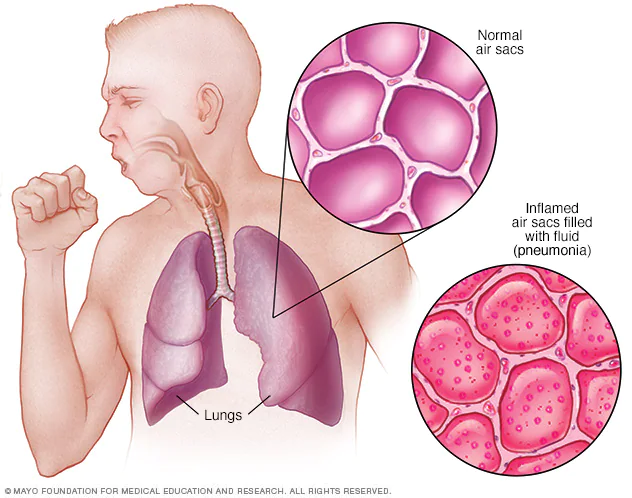
Symptoms
Most cases of pneumonia begin with a cold in the head or throat. The patient generally feels chill, shivering, difficulty in breathing and sharp pain in the chest. This may be followed by a cough with pinkish sputum which may later become brownish. The patient usually suffers from fever and headache. In more serious cases of pneumonia, the sputum may be of rusty colour. In young children, the disease may cause delirium and convulsions. Most patients feel very miserable and sweat profusely. The temperature may rise to 105 F and pulse may go upto 150 beats per minute. A common complication of all kinds of pneumonia is pleurisy.
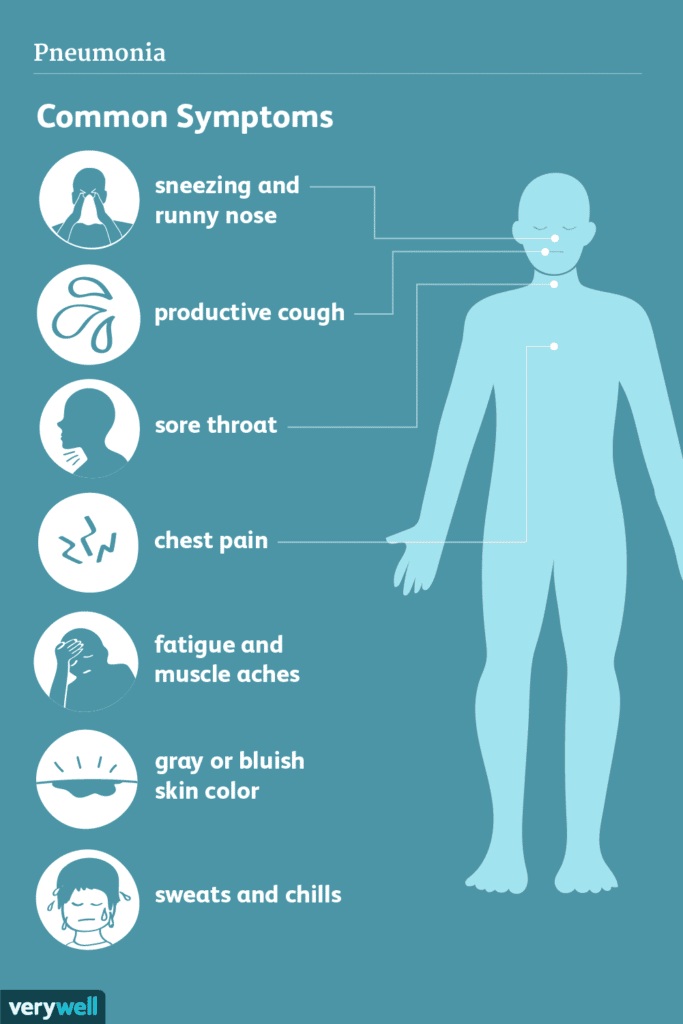
Causes
Pneumonia is caused by various types of germs such as streptococcus, staphyloccus and pneunococcus varieties. At times, certain viruses are also responsible for the disease. Other cause of this disease are fungal infection, irritation by worms, inhaling foreign matter, irritant dust or noxious gases and vapours such as ammonia, nitrogen dioxide or cadmium. The real cause of pneumonia, however, is the toxic condition of the body, especially of the lungs and air passages, resulting from wrong feeding and faulty life style. Persons with healthy tissues and strong vital force are unlikely to catch pneumonia. It is only when the system is clogged with toxic matter and the vitality s low that the germs of pneumonia invade a person.
Treatment
To begin with, the patient should be kept on a diet of raw juices for five to ten days, depending on the severity of the disease. In this regimen, he should take a glass of fruit or vegetable juice diluted with warm water every two or three hours. Fruits such as orange, mussombi, apple, pineapple, grapes and vegetables like carrot and tomatoes may be used for juices.
After a diet of raw juices, when the fever subsides, the patient should spend three or four further days on an exclusive fresh fruit diet, taking three meals a day of juicy fruit such as apple, grapes, pineapple, mangoes, orange, lemon and papaya. Thereafter he may gradually adopt a well balanced diet of natural foods consisting of seeds, nuts and grains, vegetables and fruits with emphasis on fresh fruits and raw vegetables.
The patient should avoid strong tea, coffee, refined foods, fried foods, white sugar, white flour and all products made from them, condiments and pickles. He should also avoid all meats as well as alcoholic beverages and smoking.
Sipping of cold water has also been found beneficial in the treatment of pneumonia. The patient should sip cold water at short intervals so long as the fever continues. The cold water is cooling to the feverish blood.
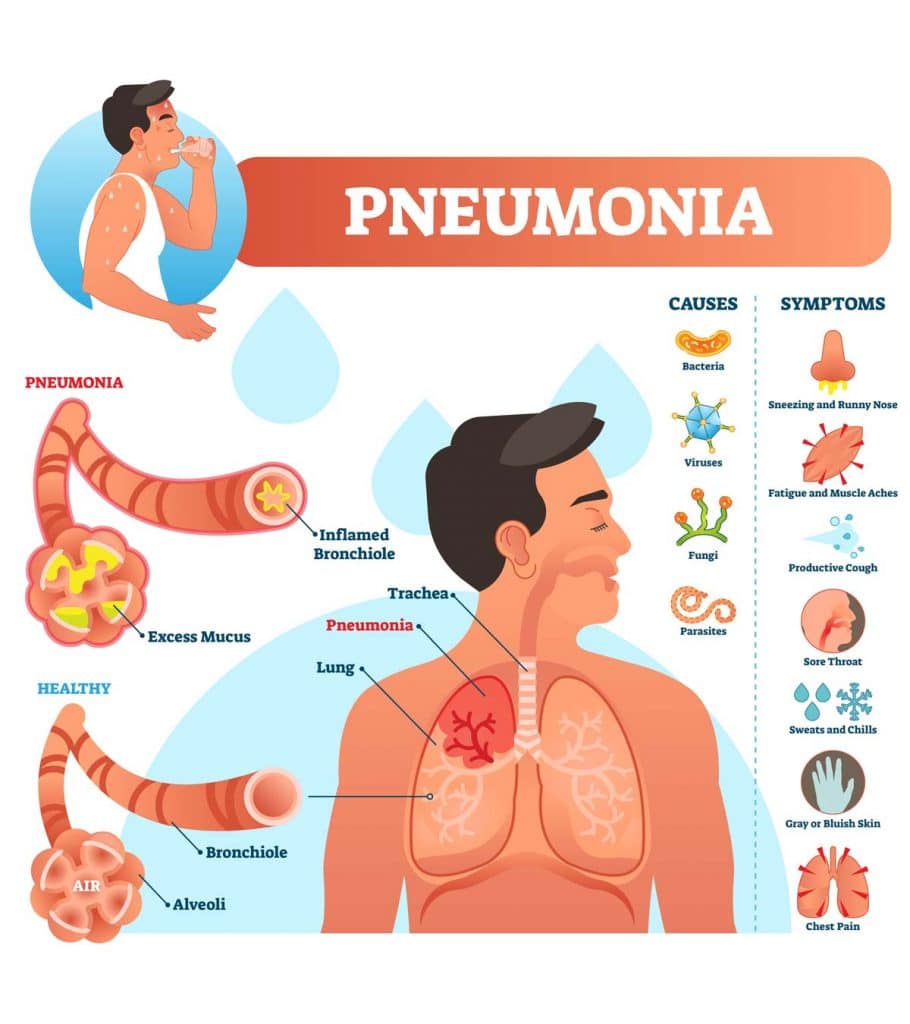
Home Remedies
Certain home remedies have been found beneficial in the treatment of pneumonia. During the early acute stage of this disease, a herbal tea made from fenugreek seeds will help the body to produce perspiration, dispel toxicity and shorten the period of fever. It can be taken upto four cups daily. The quantity should be reduced as condition improves. To improve flavour, a few drops of lemon juice can be used. During this treatment, no other food or nourishment should be taken as fasting and fenugreek will allow the body to correct these respiratory problems in few days.
Garlic is a marvellous remedy for pneumonia, if given in sufficient quantities. Garlic juice can also be applied externally to the chest with beneficial results as it is an irritant and rubefacient.

Sesame seeds (til) are valuable is pneumonia. An infusion of the seeds, mixed with a tablespoon of linseed, a pinch of common salt and a desertspoon of honey, should be given in the treatment of the disease. This will help remove catarrhal matter and phlegm from the bronchial-tubes.
The pain of pneumonia can be relieved by rubbing oil of turpentine over the rib cage and wrapping warmed cotton wool over it.

